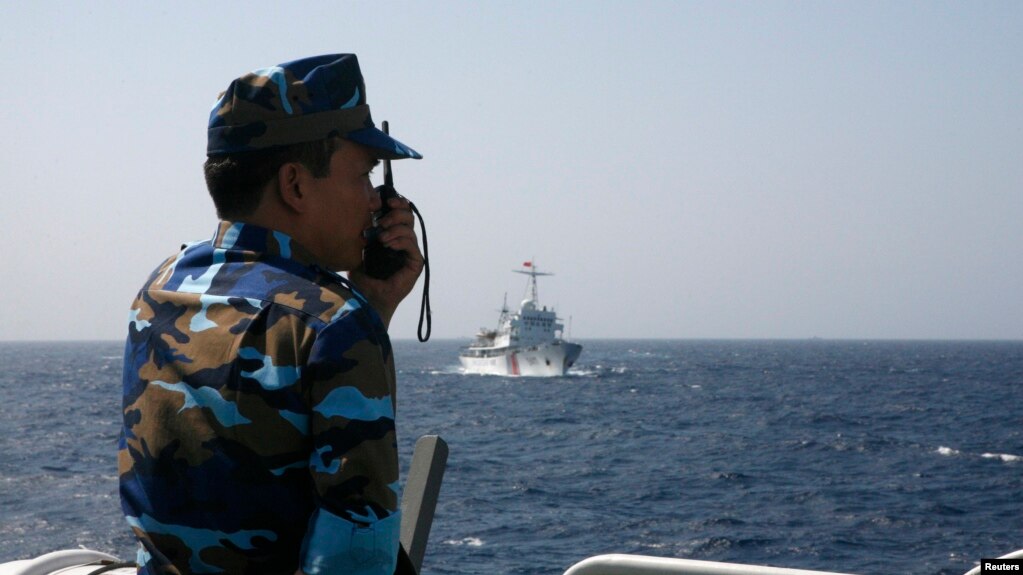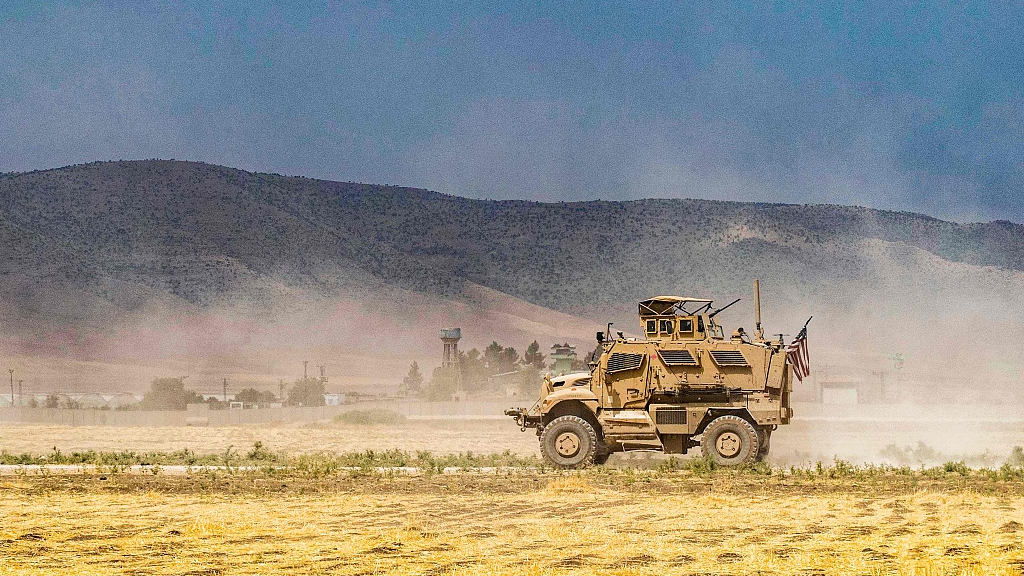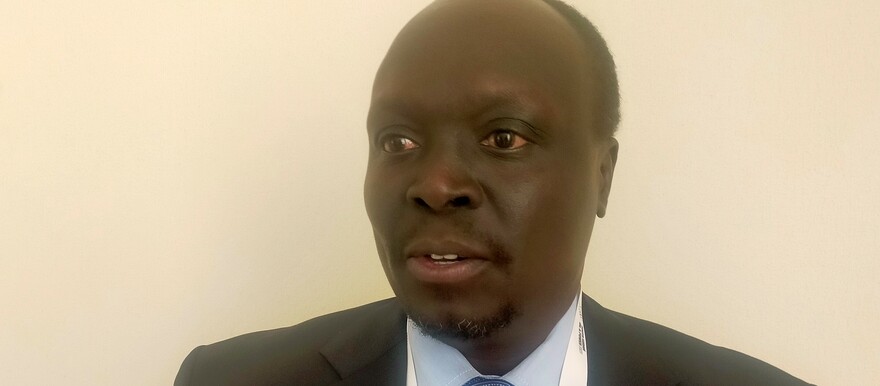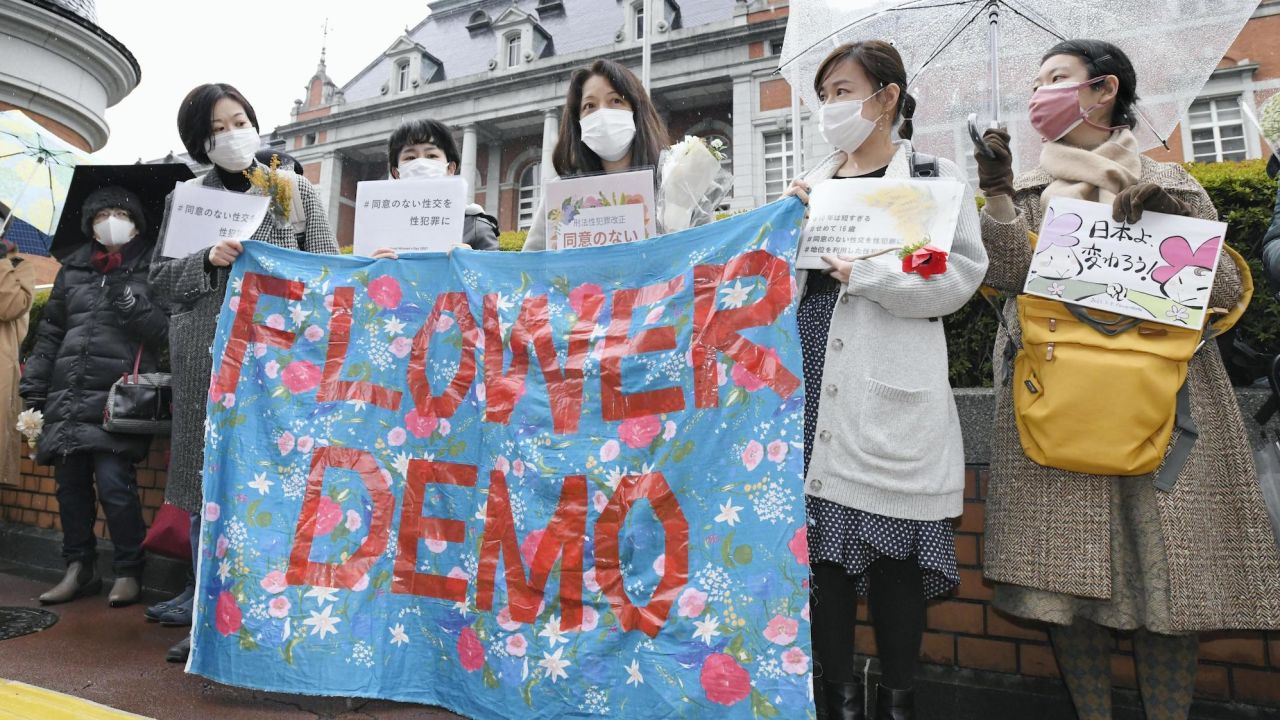
Japanese women hold a protest against sexual violence, in a movement dubbed the Flower Demo, on March 8, 2021, in Tokyo.
Kyodo News/Getty Images
By Jessie Yeung and Eru Ishikawa, CNN
Published Fri June 16, 2023
Tokyo, Japan CNN —
When Kaneko Miyuki reported her sexual assault as a seven-year-old in Japan, she remembers the police laughing at her. “I was already confused and scared,” she said. “They wouldn’t take me seriously as a child.”
The following investigation made things worse. After being questioned, she was taken back to the scene of her assault without a guardian present, against all modern guidelines.
The police never did bring her attacker to justice. The whole experience was so traumatizing for Kaneko that she repressed her memory of it until she began having flashbacks in her twenties, and didn’t come to terms with the fact she had been sexually assaulted until her 40s.
Kaneko is among countless Japanese women who say their experiences of sexual assault and abuse were ignored because they “didn’t fit the criteria” of a victim. About 95% of survivors never report their assault to police, and nearly 60% never tell anyone at all, according to a 2020 government survey.
But that could be about to change. On Friday, the Japanese parliament passed a raft of bills overhauling the country’s sex crime laws, long criticized as outdated and restrictive, reflecting conservative social attitudes that often stigmatize and cast doubt on victims.
The new laws expand the definition of rape to place greater emphasis on the concept of consent; introduce national legislation against taking explicit photos with hidden cameras; and raise the age of consent to 16. The previous age of consent, at 13, had been among the lowest in the developed world.
It marks a major victory for sexual assault survivors and activists, some of whom have spent decades lobbying for these changes.
By Jessie Yeung and Eru Ishikawa, CNN
Published Fri June 16, 2023
Tokyo, Japan CNN —
When Kaneko Miyuki reported her sexual assault as a seven-year-old in Japan, she remembers the police laughing at her. “I was already confused and scared,” she said. “They wouldn’t take me seriously as a child.”
The following investigation made things worse. After being questioned, she was taken back to the scene of her assault without a guardian present, against all modern guidelines.
The police never did bring her attacker to justice. The whole experience was so traumatizing for Kaneko that she repressed her memory of it until she began having flashbacks in her twenties, and didn’t come to terms with the fact she had been sexually assaulted until her 40s.
Kaneko is among countless Japanese women who say their experiences of sexual assault and abuse were ignored because they “didn’t fit the criteria” of a victim. About 95% of survivors never report their assault to police, and nearly 60% never tell anyone at all, according to a 2020 government survey.
But that could be about to change. On Friday, the Japanese parliament passed a raft of bills overhauling the country’s sex crime laws, long criticized as outdated and restrictive, reflecting conservative social attitudes that often stigmatize and cast doubt on victims.
The new laws expand the definition of rape to place greater emphasis on the concept of consent; introduce national legislation against taking explicit photos with hidden cameras; and raise the age of consent to 16. The previous age of consent, at 13, had been among the lowest in the developed world.
It marks a major victory for sexual assault survivors and activists, some of whom have spent decades lobbying for these changes.

Kaneko Miyuki (second from the right) and a group of activists from Spring, an advocacy organization for survivors of sexual abuse.Courtesy General Incorporated Association Spring
“We … would like to express our deepest gratitude to all the victims of sexual violence who have raised their voices together with us,” Spring, a survivor advocacy group, said on Friday.
While cautioning there was still more work to be done, such as extending the statute of limitations and in recognizing power imbalances in cases involving authority figures, it said the bills were nonetheless a sign of progress.
“Our earnest wish is that those who have been victims of sexual violence will find hope in their lives, and that sexual violence will disappear from Japanese society,” it said.
A question of consent
One of the biggest reforms passed on Friday is to change the language used to define rape to include a greater emphasis on the concept of consent.
Rape had previously been defined as “forcible sexual intercourse” committed “through assault or intimidation,” including by taking advantage of a victim’s “unconscious state or inability to resist.”
The law had also previously required evidence of “intent to resist.”
But activists had argued this is too hard to prove in many cases, such as when a victim experiences the common “freeze” response, or is too afraid to resist physically.

Members of Spring, with Kaneko Miyuki in the center, during a news conference.
Tadokoro Yuu, a representative of Spring, said the law had discouraged victims from coming forward due to “a fear of acquittal” if courts found insufficient evidence of resistance.
The new law replaces “forcible sexual intercourse” with “non-consensual sexual intercourse,” and expands the definition of assault to include victims under the influence of alcohol or drugs, those with mental or physical disorders, and those intimidated through their attacker’s economic or social status. It also includes those unable to voice resistance due to shock or other “psychological reactions.”
Age of consent and voyeurism
Other major changes include raising the age of consent to 16 years old except for when both parties are underage – on par with many US states and European nations including the United Kingdom, Finland and Norway.
The amendments also expand protections for minors, establishing grooming as a crime for the first time. They further criminalize activity like asking those under 16 for sexual images, or asking to visit a minor for sexual purposes.
It also makes it easier to prosecute people accused of taking or distributing photos of a sexual nature without the subject’s knowledge or consent – a hot button issue in Japan where upskirting and hidden cameras taking explicit photos of women has long been a problem.

She won a civil case against her alleged rapist. But Japan's rape laws need an overhaul, campaigners say
A survey last year found that nearly 9% of more than 38,000 respondents across Japan had experienced this kind of “voyeurism,” according to public broadcaster NHK. Victims described having photos taken up their skirt and shared on social media; others had photos secretly taken in changing rooms and bathrooms.
They also described the long-term impact on their mental health, with many feeling unsafe in public spaces including trains and schools. Reporting the issue rarely helped: often, peers and even police officers would place the blame on their clothing, arguing that they had placed themselves at risk by wearing skirts, NHK reported.
Until now, laws against voyeurism have been enforced only by local governments, and can vary across prefectures, complicating matters.
In one notorious incident in 2012, a plane passenger took an upskirt photo of a flight attendant, was caught with several images on his phone, and admitted guilt – but was ultimately never charged, according to NHK. The problem? The crime had taken place midair on a moving plane – so it was impossible to know which prefecture they had been traveling over at the time, thus which location’s law should be applied.
Acquittals prompt outrage
These amendments build on the work of an entire generation of activists who have tried with little success to push forth change, said Nakayama Junko, a lawyer and member of the non-profit Human Rights Now.
“It’s been a long time … It’s not just a movement that has been going on for 50 years, it’s a voice that has been heard for decades,” she said.
These previous attempts were blocked by governmental inertia and sometimes outright opposition from parliament members who believed the changes unnecessary, she said. Many people, including Japanese media, had a limited understanding of consent and believed “the crime of rape was being properly punished,” meaning little attention was paid to the issue.
Things began to change in 2019 when the country was gripped by several high-profile rape acquittals, handed down within the span of a few weeks.
In the most controversial case, a father was acquitted of raping his 19-year-old daughter in the central Japanese city of Nagoya. The court recognized that the sex was non-consensual, that the father had used force, and that he had physically and sexually abused his daughter – but judges argued she could have resisted, according to Reuters, which reviewed the verdict.
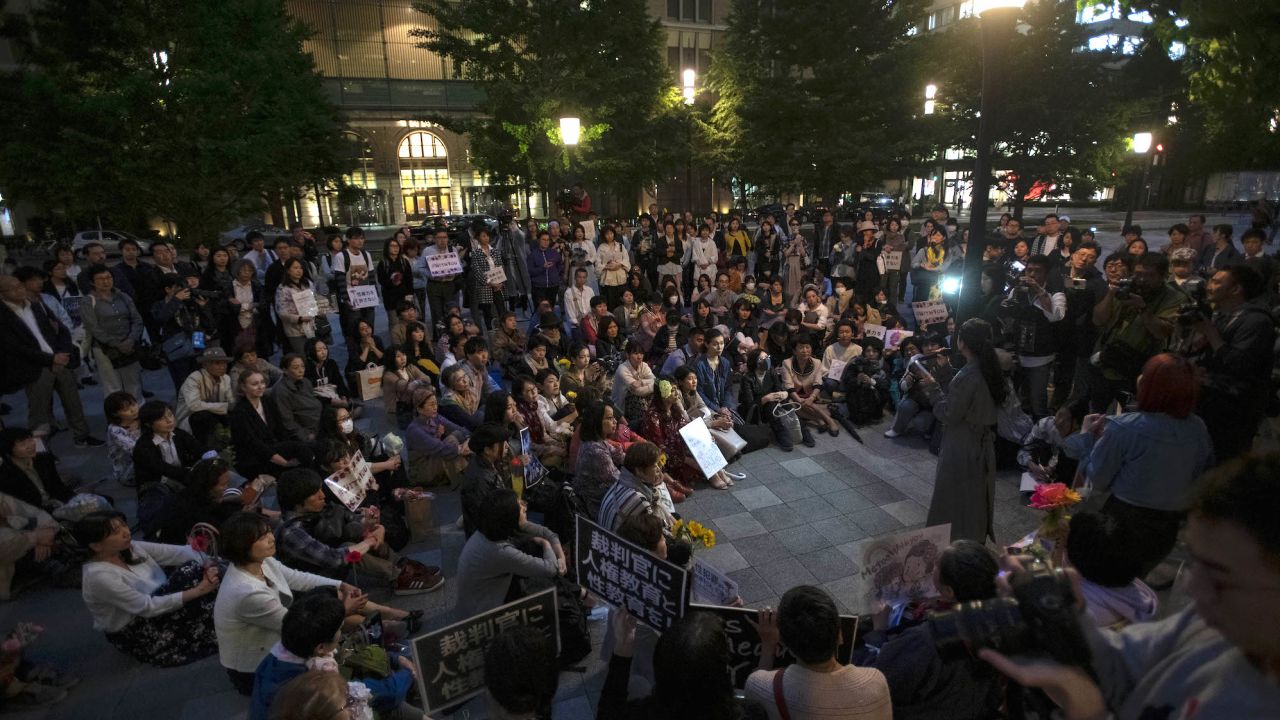
Around 150 protesters demonstrate against several rape acquittals in Tokyo, Japan, on June 11, 2019.
Alessandro Di Ciommo/NurPhoto/Getty Images
The father’s acquittal prompted nationwide protests, with women from Tokyo to Fukuoka taking to the streets for months and calling for legal change. Demonstrators held flowers as a sign of protest, and signs with slogans against sexual violence, including #MeToo.
In the Nagoya case, the father’s acquittal was eventually overturned by Japan’s high court. But the spark had been lit, finally setting into motion the proposed reforms that have for years failed to take hold.
The protests “conveyed (that) the reality of the damage was very significant,” Nakayama said, calling it a “main driving force that led to this amendment.”
The father’s acquittal prompted nationwide protests, with women from Tokyo to Fukuoka taking to the streets for months and calling for legal change. Demonstrators held flowers as a sign of protest, and signs with slogans against sexual violence, including #MeToo.
In the Nagoya case, the father’s acquittal was eventually overturned by Japan’s high court. But the spark had been lit, finally setting into motion the proposed reforms that have for years failed to take hold.
The protests “conveyed (that) the reality of the damage was very significant,” Nakayama said, calling it a “main driving force that led to this amendment.”
A long road ahead
Both nonprofit organizations CNN interviewed praised the bills as an important step forward – but cautioned that much work remains to be done.
Japan still lags far behind other developed nations in its ideas toward sex and consent, Nakayama said. Other countries have already begun amending their laws to reflect a “Yes means yes” mentality – meaning sexual partners should seek clear affirmative consent, rather than assuming consent unless told otherwise. Meanwhile, “in Japan, it seems that (the concept of) ‘No means no’ has just been communicated,” she said.
Tadokoro, the Spring representative, echoed this point, saying it was important to recognize that consent isn’t inherently or permanently granted between couples, and can be withdrawn; that “it’s wrong to assume it’s a ‘yes’ even if they come over, or do not say no clearly.”

Ignored, humiliated: How Japan is accused of failing survivors of sexual abuse
There are other legal reforms they want to tackle in future amendments: better laws protecting people with disability from sexual abuse, and outlining the ways they can give consent, and extending the statute of limitations since many survivors go decades before coming to terms with what happened to them – as in Kaneko’s case.
Others spend most of their life dealing with post-traumatic stress disorder (PTSD) and other mental health consequences, before reaching a point where they have healed enough to consider pursuing justice.
But perhaps the biggest obstacle is the Japanese public itself, and the harmful views on sexual abuse and victimhood that are still widespread.
“When I talk to other people about (my assault), I get avoided, and am not accepted,” said Kaneko, recalling people who told her she would “forget with time” or that that’s just life.
Sometimes their responses are far crueler. “I get ruthless reactions like, ‘You got done?’” she said.
There are some positive signs of change, she said, pointing to public awareness campaigns by the government and increasing sexual education in schools. But there is still a gaping lack of systemic support for survivors like counseling, therapy, and public services to help them re-enter society.

Japan's powerful patriarchy often sidelines women. Fixing that won't be easy
“Survivors of sexual assault like myself cannot even work, or go about your life – you become mentally ill, and you can’t take care of yourself,” she said.
Authorities also need to introduce trauma-informed training for law enforcement and other workers dealing with survivors, said Tadokoro, adding that “some police investigators understand (how to approach the situation), while others do not understand at all.”
For Kaneko, who went on to become the general secretary of Spring, the damage done at the police station when she was seven years old compounded the trauma from her assault – leaving scars that took decades to untangle.
“I was implanted with a distrust of people when I experienced that kind of thing in an institution that is supposed to protect citizens, such as the adults and the police,” she said.
“For many years, despite a lot of pain, I had no idea what (the source) was for many years … Having PTSD is not easy to heal on your own.”
CNN’s Junko Ogura and Junko Fukutome contributed reporting.

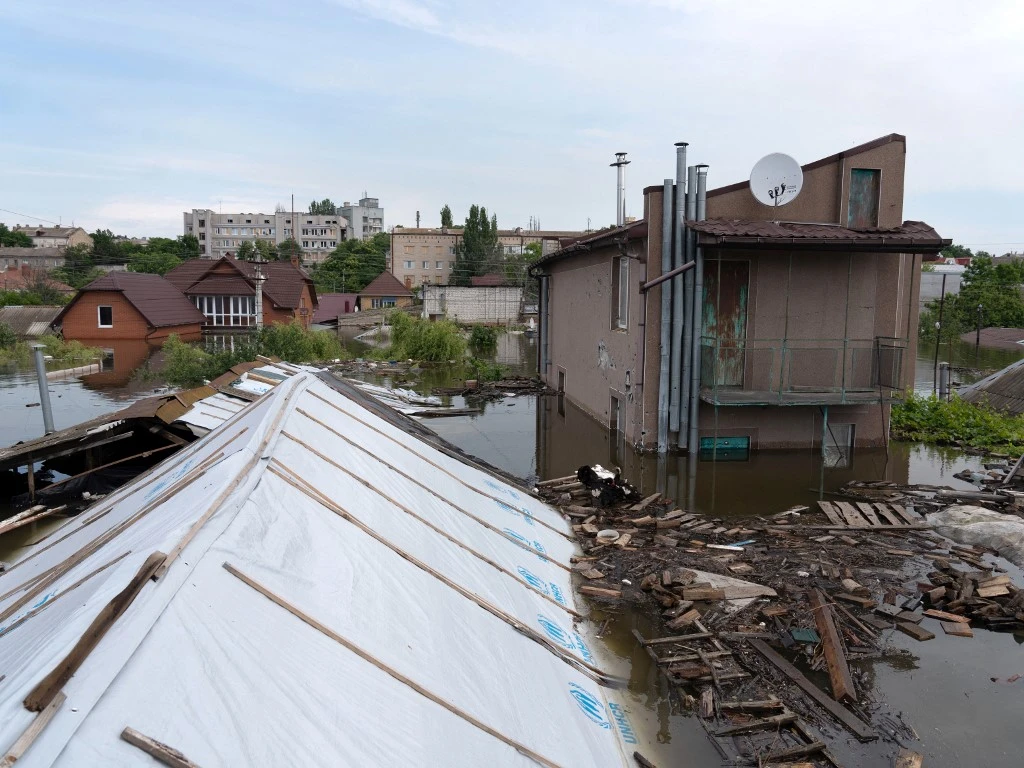
/cloudfront-ap-southeast-2.images.arcpublishing.com/nzme/4ZNIGWXMAJF3PEMGTBZY3NBJLQ.jpg)
/cloudfront-ap-southeast-2.images.arcpublishing.com/nzme/MFH3DRFFEVDOZJD7IE6LT5XKHQ.jpg)


